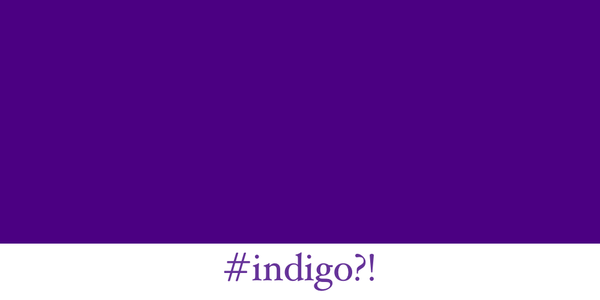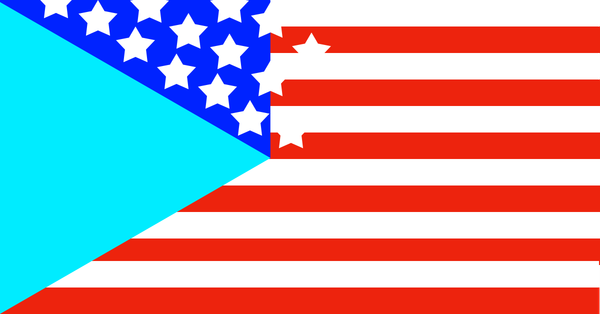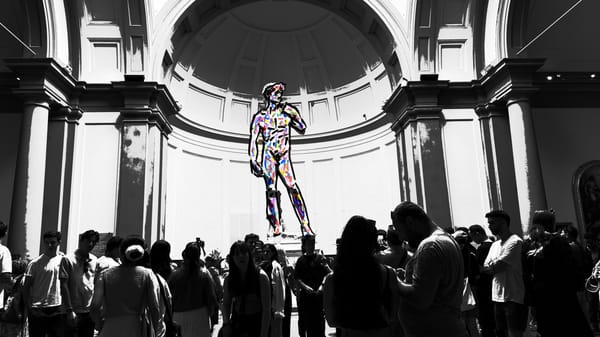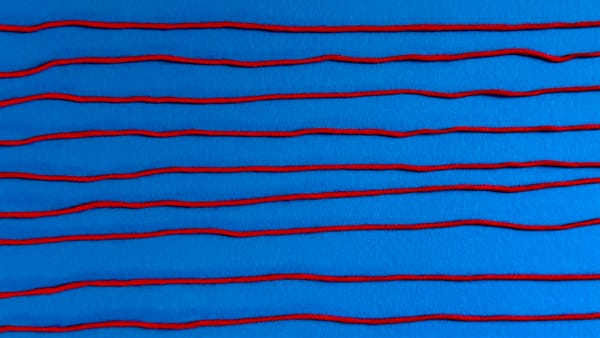My Eye Color
The etymology of the word blue includes everything from brothels to mermen to monsters with twelve feet and six heads to the effects of magic herbs, but not necessarily in that order.
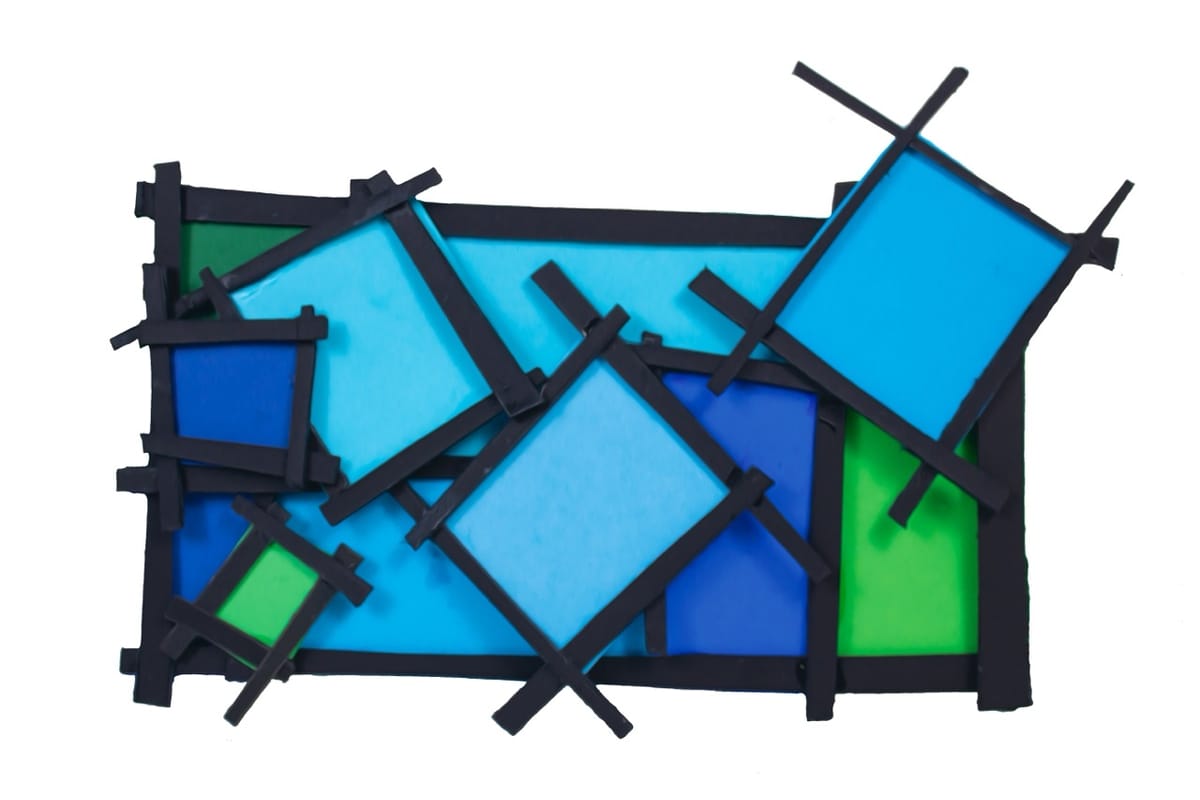
The etymology of the word blue includes everything from brothels to mermen to monsters with twelve feet and six heads to the effects of magic herbs, but not necessarily in that order.
A word’s etymology is not what word means today, but rather what it meant when it was coined and how that definition and usages changed over time, how languages copied it and modified its meaning, sometimes even returning the word, with its new meaning, back to the language they borrowed the word from.
Sometimes only by exploring a word’s past can you better understand what it means today.
I’ve been researching phrases relating to the color blue for a few months already, and every single time I open a new source, I learn something new, figure out a new angle, and/or have thirty new questions.
In one source, I discovered a reference to an alternate etymology for the name of a specific hue of blue. While I am nearly certain that it is a lovely interpretation not based in reality, it feels like a Greek myth or Hollywood movie: something that can be true without being real.
With that introduction, one of the sources for the word blue comes from the word glaucus.
Glaucus (the color)
To start, glaucus is related to the eye, a cognate (related word) of glaucoma. It doesn’t exactly mean “blue”, rather “blue-green”, like the ocean, like my eyes. It comes from the Greek Γλαῦκος, Glaûkos meaning the same thing.
The origin story was probably very simple. Someone probably was hitting on someone else with a cheesy line, and said something like “wow, the ocean is literally the color of your eyes.” and they just called the color “eyes”. But in Ancient Greek.
It’s an example of metonymy, which is when we name a color after something that looks like it.
This is how many colors get their names. We try to find something that a color reminds us of, that everyone would know, and say “the same color as x” and over time the “the same color as” falls off. In time, people only know the item by the color, as they had never seen the item that originally inspired the color.
French and Spanish Cognates
One of the cognates that were derived from glaucus was garçon in French. In both English and French, the word blue has always had a connotation of “novice, young”, and before learning about the word “glaucus”, I always assumed it was because some sort of army cadets wore blue. I was wrong.
Gars (and later Garço) meant “blue, the color of water” in Spanish which was roughly the same thing glaucus meant in Latin, and a slew of related cognates and meanings that are connected to bawdy juvenile behavior and debauchery, or garçonia. Interestingly, the Spanish-French dictionary described garço de ojos as eyes which are green or blue.
For the word blue, the gl- in glaucus became the bl- in bleu, and the long vowel changed from au to eu, and then the English (probably) borrowed it from there.
Greek Myths
Folk etymologies are not new. They are as old as the Greek myths. My personal rule is: if you are going to create a fake etymology for a word, make it obviously false, and not boring.
If you think about it, many Greek myths were created to explain something thought unknowable about the world: Ask Persephone why there is winter and spring. Ask Athena why Athens has so many olive trees. Ask Venus why the color of the Adonis flower is purple. Or for a slightly different tradition, ask Noah why there are rainbows in the sky after the rain.
In the pre-modern world, people were just as curious about how the world works, but they didn’t have the tools or knowledge to understand the science. So they created stories about why these things happened. They created a pantheon of actors / cast of characters, and their stories became more and more complex and intertwined.
Glaucus (the god)
A simple fisherman named Glaucus was one of the characters, and was written about in Ovid’s Metamorphoses. In a line, Glaucus ate a magic herb, grew fins and a tail in the place of arms and legs. and became an immortal, prophetic sea-god. He was also an advisor to seafarers.
Like many actors, Glaucus’ Wikipedia page has a section called “Love Life”.
For example, he fell in love with a nymph, Scylla, who was turned off by his fins, so he asked Circe to create a potion to help seduce Scylla, but then Circe fell in love with Glaucus, Glaucus didn’t love her back and was rather rude with his declination, and Circe retaliated by poisoning Scylla’s pool and turning her into a monster with twelve feet and six heads.
Glaucus also had an affair with Ariadne, and ultimately fought with Dionysus over her. And according to one source, he actually threw himself into the sea out of his love for Melicertes, another sea god.
The mythology behind Glaucus (the god) explains the existence of glaucus (the color), and that is that the sea is blue-green-gray. With the color, came the character breakdown of the sea god and all the new authors who added him into their narratives, expanding his story. Knowing that character breakdown is why the Spanish garçonia was synonymous with a debauched lifestyle, which reveals an early understanding of how the word blue is innately connected to obscene content.
I can imagine the first author was looking into someone’s beautiful glaucus-colored eyes, and imagining a whole backstory about why their eye color was so similar to the color of the sea.
Bleu as the color
But there is also another turn in this. In the course of my research, I started to wonder when bleu actually started being used as a color, but also when it became the dominant name for the color. Well into the 17th century, there were a bunch of different words being used to describe. I found early French sources ( early 15th century, if I’m not mistaken) which refer to the word bleu, but it was one hue out of many.
As late as 1661, bleu is not even still listed as a separate entry in a French etymological dictionary but Pers is, and that is the entry where it talks about the etymology of bleu. Pers is a blue color that originated in Persia that was used in French from even before the 15th century. Inde or what we would call India ink, a blue from India.
Sky and Sea
When Jacob Grimm was explaining the word blau in his Deutsches Wörterbuch, he made a very weird reference to the word “blæven” (blau + heaven, or sky-blue), connecting it to Perseus, who flew through the sky with his winged shoes. He continues to note that in French, pers means glaucus.
While I don’t think that this was a common association nor did I see it in any French text, and that the color was named for the country of origin, not the god, it is fascinating to see the continuation of the mythology of color. It felt like an interpretive midrash or gloss on the original myth.
Having a mythological distinction between the blue of the ocean and the blue of the sky, by naming the color of the ocean bleu after Glaucus and the heaven pers after Perseus, sounds divine.
Like I wrote earlier, every new source brings new questions.
What if it Pers was actually named for the country of origin, and not the god, but during the renewed French blasphemy laws of the 1660s, someone made the case that mentioning pers was inter alia mentioning Perseus, and therefore was counterproductive to the renewed Catholic focus on ciel / heaven?
Even though it wasn’t reality, it could still be true.
For the paperboard collage, I've used blues and greens, as the color glaucus is some combination of the two.
